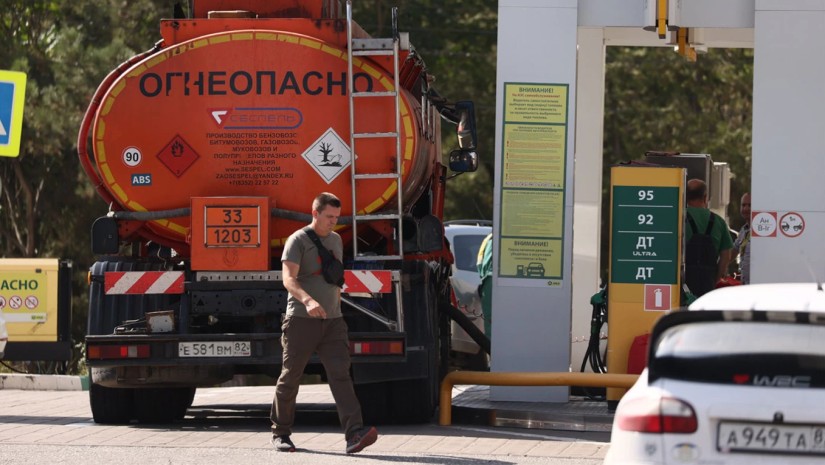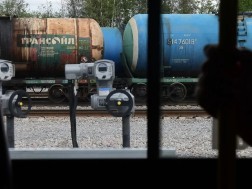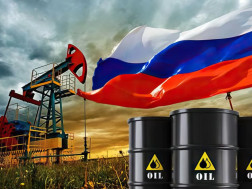Russia has imposed “temporary restrictions” on the export of gasoline and diesel in order to stabilize domestic fuel prices, the government said Thursday.
“Temporary restrictions will help saturate the fuel market, which will in turn reduce prices for consumers,” Russia’s cabinet of ministers said in a statement.
A decree signed by Prime Minister Mikhail Mishustin said the curbs — which include exceptions for transit, humanitarian and intergovernmental purposes — go into effect Thursday. It did not specify an end date.
The decree instructs Russia’s Economic Development Ministry to inform Moscow’s allies in the Eurasian Economic Union (EEU) about the curbs.
The Moscow-led EEU comprises Russia’s neighbors Belarus, Armenia and Kyrgyzstan — which are all energy dependent on Russia — as well as resource-rich Kazakhstan.
Russia’s previous steps to stabilize the fuel market included raising the mandatory gas and diesel supply volumes to the commodity exchange and monitoring fuel purchases for agricultural producers with "timely volume adjustments," according to the government statement.
Russia’s Agriculture Minister Dmitry Patrushev earlier this month proposed temporarily banning fuel product exports to avoid a “catastrophe” this harvest season.
Energy Minister Alexander Novak on Wednesday had promised “radical solutions” to stabilize the domestic wholesale market.
Wholesale gasoline and diesel prices declined by up to 6% on Russia’s commodities exchange after the announcement Thursday afternoon.
Traders have pointed to maintenance at oil refineries, railway holdups and the ruble’s weakness for the jump in wholesale fuel prices in recent months.
Russia significantly ramped up gasoline exports this year by finding new buyers after the United States, the European Union and the G7 countries banned Russian oil products, Moscow Times reports.
















